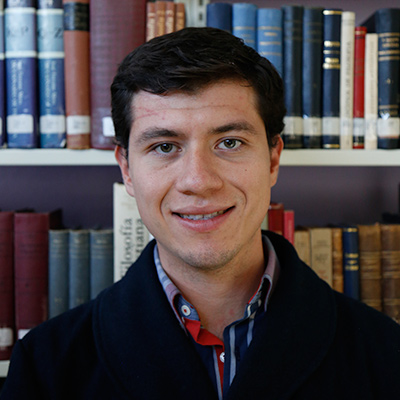Los sistemas aspectuales del alemán y el español. Un análisis contrastivo
DOI :
https://doi.org/10.32870/vel.vi12.115Mots-clés :
Aspecto verbal, Aktionsart, sistema aspectual, lingüística contrastiva, alemán como lengua extranjera, perfectivo /imperfectivo.Résumé
El presente texto explora el fenómeno verbal conocido como aspecto. Para ello, se propone su comprensión a partir de tres niveles fundamentales de realización lingüística: el lexical, el morfológico y el sintáctico. Esta distinción pretende homogeneizar las múltiples denominaciones que recibe el fenómeno. El cometido central del texto es, no obstante, la comparación de los sistemas aspectuales de la lengua española y alemana en función de este modelo. La justificación central de la investigación radica en la escasa literatura especializada desde el punto de vista contrastivo. Asimismo, al final de la investigación se esbozan algunas implicaciones didácticas para la enseñanza del alemán como lengua extranjera para hispanohablantes.
Téléchargements
Métriques
Références
Andersson, S. (1974). Aktionalität im Deutschen: Eine Untersuchung unter Vergleich mit dem russischen Aspektsystem. Stockholm: Uppsala University.
Bartsch, R. (1995). Situations, tense, and aspect dynamic discourse ontology and the semantic flexibility of temporal system in German and English. Berlin: Mouton de Gruyter.
Binnick, R. (1991). Time and the Verb a Guide to Tense and Aspect. New York: Oxford University Press.
Binnick, R. (2012). The Oxford handbook of tense and aspect. New York: Oxford University Press.
Bosque, I. (Hsgb.). (1990). Tiempo y aspecto en español. Madrid: Cátedra.
Comrie, B. (1976). Aspect: An introduction to the study of verbal aspect and related problems. Cambridge: Cambridge University Press.
Croft, W. (2012). Verbs: Aspect and causal structure. Oxford. Oxford University Press.
Dahl, Ö. (2000). Tense and aspect in the languages of Europe. Berlin: Mouton de Gruyter.
de Groot, C. (2000): „The absentive“. In: Östen Dahl (Hrsg.): Tense and aspect in the languages of Europe. Berlin/New York: 693–719.
Dewell, R. B. (2015). The semantics of German verb prefixes. Amsterdam: John Benjamins.
Dowty, D. R. (1979). Word meaning and Montague grammar: The semantics of verbs and times in generative semantics and in Montague’s PTQ. Dordrecht: D. Reidel Pub.
Filip, H. (2012) Lexical Aspect. In: Binnick, R. The Oxford handbook of tense and aspect. (721-751). New York: Oxford University Press.
Fleischer, W., & Barz, I. (2012). Wortbildung der deutschen Gegenwartssprache. Berlin: De Gruyter 112 Alfonso Romero Zúñiga. Los sistemas aspectuales del alemán y el español. Un análisis contrastivo.
Heinold, S. (2015). Tempus, Modus und Aspekt im Deutschen: Ein Studienbuch. Tübingen: Narr.
Helbig, G., & Buscha, J. (2004). Deutsche Grammatik: ein Handbuch für den Ausländerunterricht. München: Klett-Langenscheidt.
Klein, H . G . (1974) . Tempus, Aspekt, Aktionsart. Tübingen : Niemeyer.
Krause, O. (2002). Progressiv im Deutschen: Eine empirische Untersuchung im Kontrast mit Niederländisch und Englisch. Berlin: De Gruyter.
Krzeszowski, T. (1990). Contrasting languages: The scope of contrastive linguistics. Berlin: Mouton de Gruyter.
Mair, C. (2012). Progressive and continuous Aspect. In Binnick R.I, The Oxford handbook of tense and aspect. New York: Oxford University Press.
Manthe, C. (2013). Deverbale Verben und Aktionsartlichkeit. Hamburg: Verlag Dr. Kovac.
Pepouna, S. (2007). Aktionsart, Zeitkonstitution und Aspekt : Eine Untersuchung am Beispiel des Deutschen, des Französischen und des Polnischen. Regensburg: Roderer.
RAE. (2010). Nueva gramática de la lengua española. Madrid: Real Academia Española.
Ritz, M. E. (2012). Perfect tense and aspect. In Binnick R.I, The Oxford handbook of tense and aspect. New York: Oxford University Press.
Tschirner, E. (1991). Aktionalitätsklassen im Neuhochdeutschen. New York/Bern: Peter Lang.
Vendler, Z. (1958) Verbs and Times. Philosophical Review, 66: 143-60.
Wierzbicki, M. (1999). Das Tempus- und Aspektsystem im Deutschen und Polnischen: Versuch einer integralen Theorie im Rahmen einer temporal erweiterten Aussagenlogik. Heidelberg: J. Groos.













